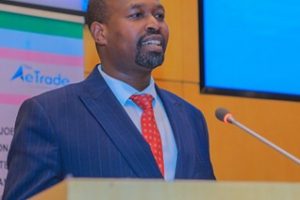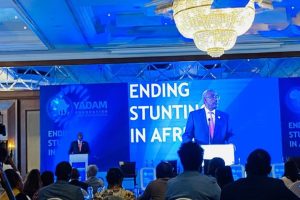
At the heart of Ethiopia’s ongoing pursuit for peace and stability lies the imperative of inclusive national dialogue. As the country continues to grapple with the lingering effects of conflict and political strife, both from the past and recent years, creating an environment where diverse voices are heard is not only essential but it is also an urgent necessity.
Inclusive dialogue serves as a vital mechanism for conflict resolution and as a cornerstone for establishing a robust framework that upholds the rule of law and fosters national cohesion.
It is also a process that brings together various stakeholders—government representatives, political parties, civil society, religious groups, and ordinary citizens—to address pressing national issues.
Experts in social science advise that national dialogues must be inclusive and follow a participatory approach because such methods yield positive outcomes. This approach ensures that representatives with diverse perspectives are included, and it allows for the engagement of a wide array of voices. Inclusive dialogue helps acknowledge the experiences and concerns of all communities, addressing grievances and fostering a sense of belonging, especially among marginalized groups.
Moreover, inclusive national dialogue plays a pivotal role in building trust among citizens. By offering a platform for open communication, it helps bridge divides and nurtures trust between different factions. When individuals feel heard and valued, tensions are reduced, and the way is paved for collaborative solutions.
Not only that; but inclusive dialogue also creates the space needed to devise shared solutions for resolving conflicts. By fostering a common understanding, dialogue enables participants to collectively identify and address the root causes of issues. This collective problem-solving approach encourages ownership of solutions, increasing the likelihood of successful implementation.
In light of these facts, Ethiopia has embarked on an ambitious initiative to promote inclusive dialogue as part of its efforts to foster peace and reinforce the rule of law. The Ethiopian National Dialogue Commission, led by Chief Commissioner Prof. Mesfin Araya, has made significant strides in gathering diverse perspectives from communities and stakeholders. This initiative aims to address long-standing issues and create a platform for meaningful discussion among all segments of society.
In a recent briefing, Prof. Mesfin Araya confirmed that the Commission has completed the consultations in 615 districts, covering nine states and two city administrations. This milestone achievement marks a critical phase in the preparations for the upcoming National Dialogue Conference. The Commission’s three-month performance report, presented to the House of People’s Representatives, detailed the extensive activities undertaken to gather agenda items that reflect the concerns and aspirations of the Ethiopian people.
The report highlighted the Commission’s commitment to inclusivity, ensuring that voices from all corners of the nation are heard. Notably, consultations have begun in Tigray, engaging regional leaders and academic institutions to initiate dialogue in an area deeply affected by conflict. This approach underscores the Commission’s sensitivity to local contexts and the need for tailored solutions that resonate with the unique challenges faced by different communities. The dialogue process is designed to be participatory and inclusive, with a focus on gathering agendas from federal political parties, religious institutions, and the Diaspora Community.
Deputy Chief Commissioner Hirut Gebreselassie emphasized that the process is carefully structured to fit the context of each locality, ensuring that proposed agendas address national issues while respecting regional specificities.
Members of Parliament have praised the Commission for its progress in conducting dialogue in a manner that encourages broad participation. Government’s Chief Whip Tesfaye Beljige expressed the administration’s strong belief in resolving enduring issues through constructive dialogue, highlighting the potential for sustainable solutions to emerge from these discussions.
Ethiopian leadership recognizes the significance of the national dialogue as a viable means to addressing the root causes of conflict and misunderstanding. Speaker of the House of People’s Representatives, Tagesse Chafo, stressed the need for sincere and active participation from all stakeholders to ensure the success of the dialogue’s process. He affirmed that the House would provide the necessary oversight and support to the Commission, reinforcing the government’s commitment to fostering an environment conducive to peace.
The collaborative spirit observed within the Commission and among political leaders reflects a shared understanding that the path to national reconciliation requires collective effort. By prioritizing dialogue, the Ethiopian government is laying a strong foundation for peace, stability, and the rule of law.
Meanwhile, the Ethiopian Political Parties Joint Council handed over agendas collected by states and national political parties to the Ethiopian National Dialogue Commission.
The agendas submitted to the Commission by the Chairperson of the Joint Council Solomon Ayele and the executive members of the Council, compiled in seven main sections and 64 detailed issues, focusing on important national issues.
Speaking on the handover ceremony, Chief Commissioner Prof. Mesfin said that the Commission has been working closely with the Joint Council in accordance with a memorandum of understanding signed to work together for the successful accomplishment of the national dialogue process.
The Commission will properly and effectively utilize agendas organized by institutions and community sections, the Chief Commissioner added.
He also urged other institutions and associations to submit their agendas in an organized manner.
Chairperson of the Joint Council Solomon Ayele also stated that the Council is doing its part to make the national consultation a reality.
Ethiopia’s efforts to orchestrate inclusive dialogue represent a hopeful path forward for a nation that has faced significant challenges. By embracing the voices of diverse communities and fostering collaboration, the Ethiopian National Dialogue Commission is paving the way for constructive solutions to longstanding issues.
As the nation moves towards the National Dialogue Conference, the commitment to inclusivity and participation will be crucial in addressing the complexities of Ethiopian society. With the support of government leaders and the active involvement of citizens, Ethiopia can cultivate a culture of dialogue that not only resolves current conflicts but also strengthens the bonds of unity among its people. The journey towards peace is ongoing, but with these concerted efforts, Ethiopia is taking important steps towards a more harmonious future.
BY MENGISTEAB TESHOME
THE ETHIOPIAN HERALD FRIDAY 6 DECEMBER 2024





